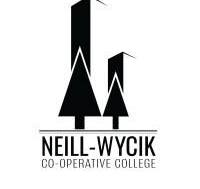The Challenge
Neill-Wycik Co-operative was seeking a partner to complete an organizational review to support its financial health and ensure value for its members. We worked to identify Neill-Wycik Co-operative’s core value proposition and evaluate its financial sustainability and operational efficiency, all with the impact-focused goals of improving service delivery for tenants.
The Approach
Our team designed a collaborative and human-centered organizational review process that included engaging with the organization’s Board of Directors, management, staff, and tenants. This approach validated our preliminary research and analysis, and it informed the key areas of focus for the organization’s continued evolution: enhancing administration, organizational structure, and operational functions.
Meaningful and effective engagement must be frequent and iterative, so we intentionally created a process allowing ongoing input from interested, affected, and relevant people. This integrated approach informed a series of specific, tangible, and measurable recommendations for each area of opportunity.
The Outcome
Davis Pier is known for going beyond reports and recommendations. Our bench strength in supporting implementation and working in true collaboration with our clients is one of many things that sets us apart.
So, naturally, the next step for our partnership with Neill-Wycik was to develop a proper implementation roadmap that outlined relative priorities, timelines, organizational dependencies, available tools, and required resources to support implementation and evaluation.
The Impact
By engaging with Neill-Wycik Co-operative’s diverse community, including Board members, management, staff, and tenants—our team ensured that critical voices were heard and considered in shaping future decisions—and those decisions are stronger and more strategic for it.
The iterative approach taken allowed for a comprehensive exploration of Neill-Wycik Co-operative’s challenges and opportunities, resulting in tailored, actionable recommendations addressing the co-operative’s unique circumstances. Through transparent communication and active involvement, a sense of ownership and commitment was cultivated among all involved parties, providing the organization with a tangible roadmap to implement meaningful change and sustainable growth.
In our work, the effort matters as much as the outcome. Because these groups saw their input and perspectives reflected in the work, that effort extended well beyond the implementation of an organizational review. It helped build trust and buy-in across the organization.

